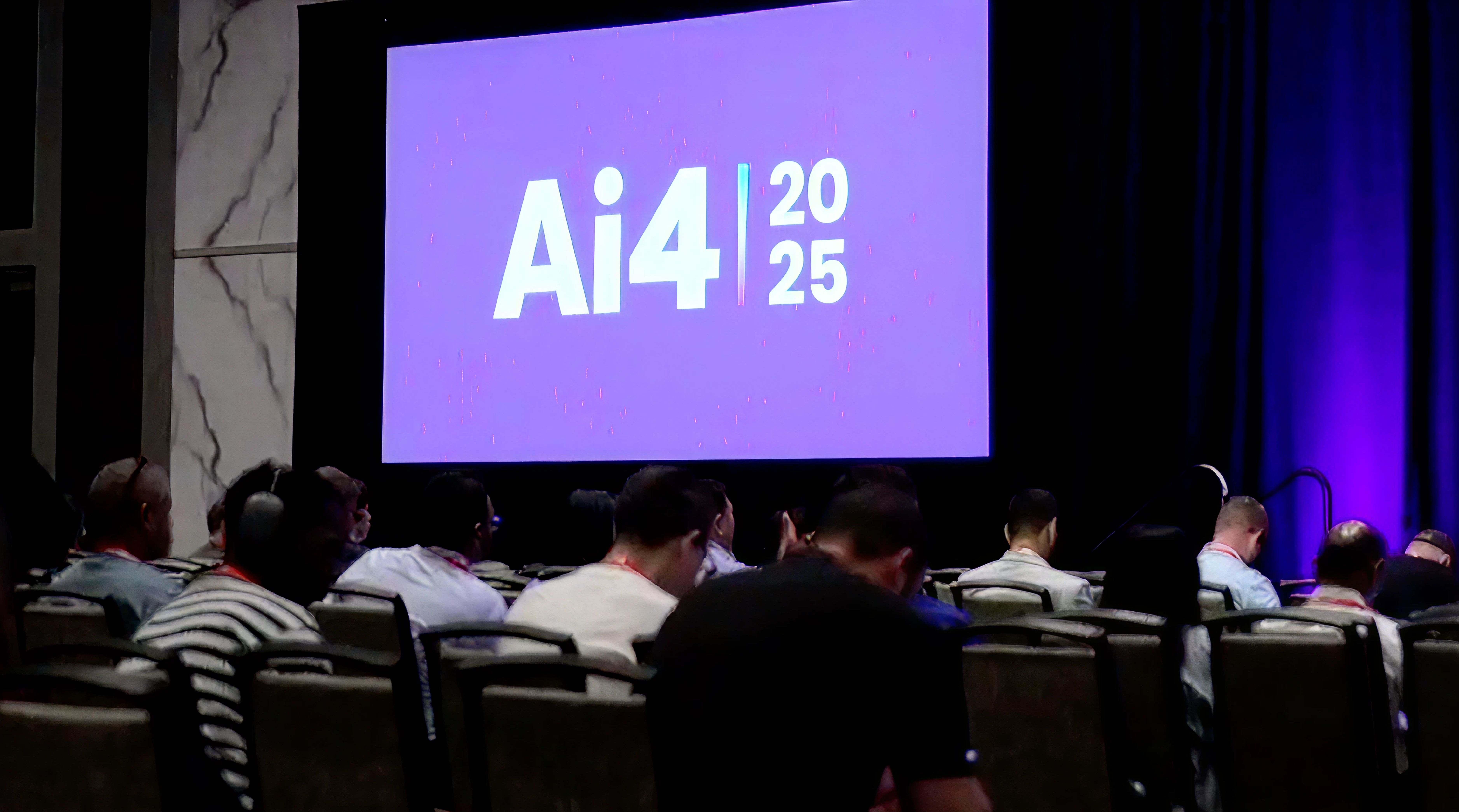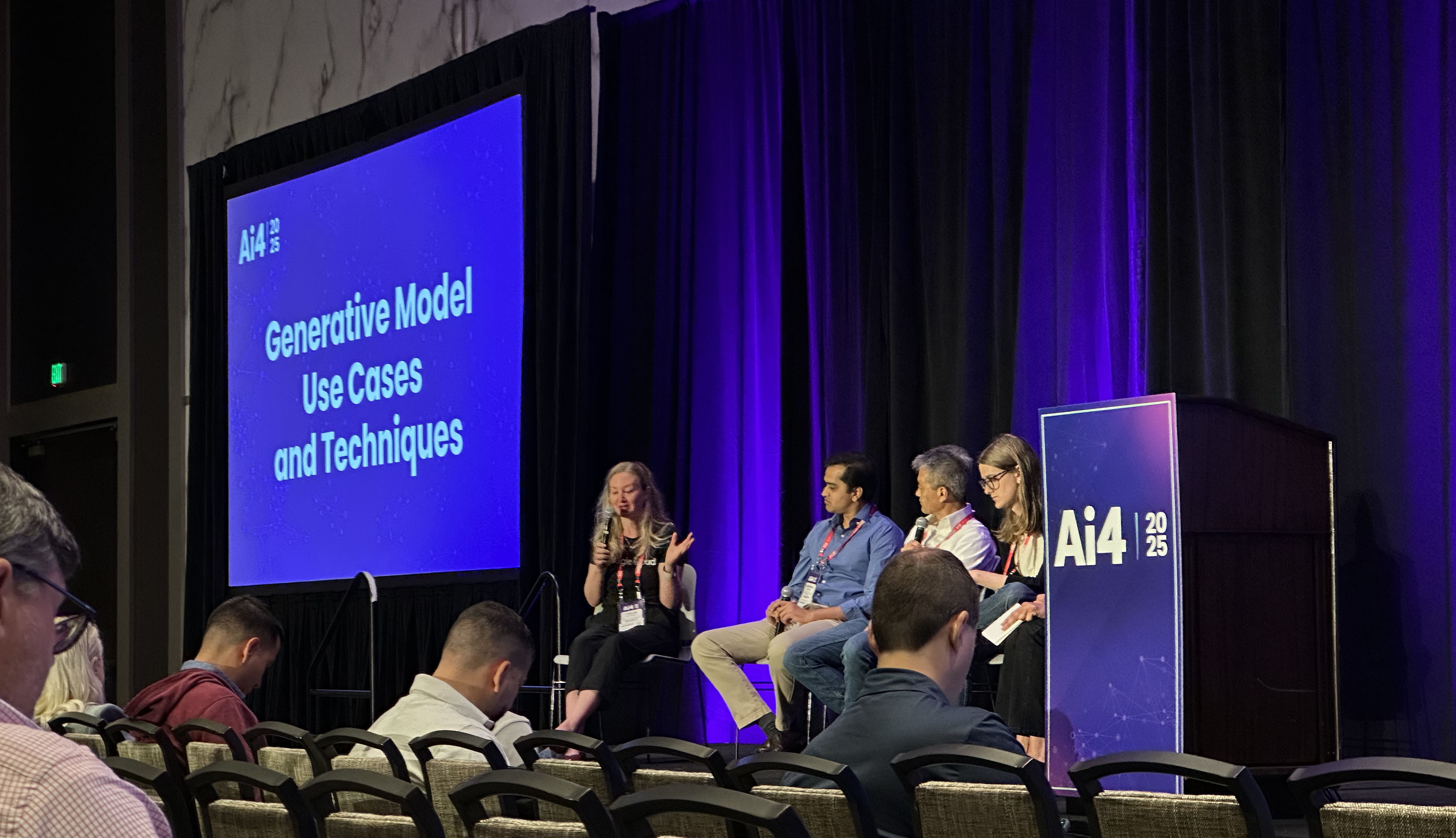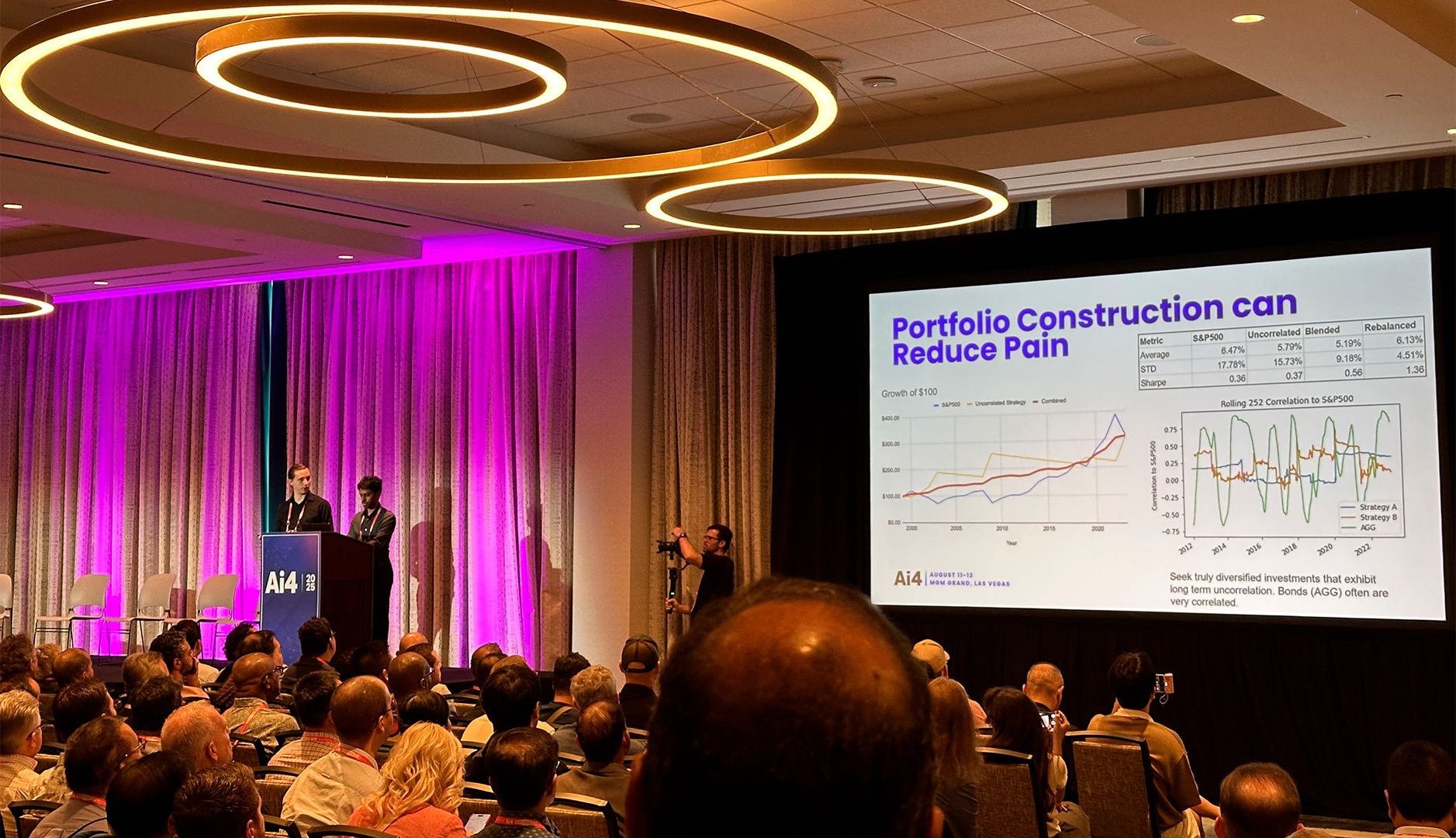Discover the lessons from AI4 2025: trustworthy, scalable, and human-adopted AI. Key strategies for companies looking to innovate with artificial intelligence.

AI4 2025 in Las Vegas brought together technology leaders, academics, and business executives to discuss the future of artificial intelligence. With over 8,000 attendees, 600 speakers, and 250 exhibits, the event proved to be the global epicenter of AI innovation. As an attendee, Meetlabs identified three essential pillars for success in digital transformation: building trust, scaling securely, and achieving human adoption. This article summarizes the most valuable lessons and how to apply them in corporate environments.

The event highlighted how artificial intelligence is no longer optional for organizations—it has become a strategic enabler. Leading companies are integrating generative AI, specialized agents, and low-code platforms to accelerate decision-making, reduce costs, and enhance customer experience.

AI4 2025 made it clear that the success of artificial intelligence does not depend on technology alone but on three fundamental factors: trust, scalability, and human adoption. Trust is built with auditable, transparent models; scale is achieved through platforms capable of operating in complex, regulated environments; and adoption requires that people embrace technology as part of their daily processes. Without this balance, even the most advanced AI can fail.

Deepchecks is an Israeli company developing validation and monitoring solutions for AI models. Its open-source tools detect bias, errors, and drift in real time, ensuring systems operate reliably and transparently. In practice, they make machine learning and LLM models auditable, mitigating risks and meeting strict compliance standards. For Meetlabs, Deepchecks is a benchmark for building trustworthy and secure AI.
Purple Fabric, developed by IntellectAI, is an enterprise platform designed to automate complex processes in regulated sectors such as banking, insurance, and finance. Its approach is based on multi-agent AI: teams of “digital experts” that collaborate to complete tasks in parallel, drastically cutting time and costs. One example presented at AI4: complaint-handling processes that used to take 5 weeks were reduced to just 20 minutes. Purple Fabric shows how scalability and embedded governance can turn AI into a true engine of impact.
Logicon, a Chicago-based technology firm, combines automation with organizational change management. Beyond integrating systems and AI agents, its differentiator is ensuring that people naturally adopt these technologies. This translates into strong results: over 800,000 engineering hours optimized and up to $80 million in savings for clients. Logicon proves that innovation is not only technical but also cultural, and that real ROI happens when technology is fully embraced by its users.
At AI4 2025, several frameworks were presented to help companies integrate AI effectively and sustainably. These models focus not only on technology but also on turning innovation into real value for users and organizations. Among the most prominent were The Stochastic PM and The Three Pillars of LLM Strategy. Both offer a strategic playbook that allows organizations not just to adopt AI but to do so in a way that is efficient, measurable, and future-focused.

The Stochastic PM is not a company but a product management framework for AI introduced at AI4. It is based on the idea that innovation is inherently uncertain but manageable through three principles:
For Meetlabs, this framework serves as a practical guide to designing AI products that are useful, measurable, and adaptable in fast-changing environments.
This framework identifies the factors that separate winners in the Large Language Model (LLM) space. It rests on three principles:
Together, these pillars provide a roadmap for companies like Meetlabs to develop AI solutions that not only succeed at launch but also sustain relevance and competitive edge over time.
One of the recurring themes at AI4 2025 was the need to embed artificial intelligence within strong ethical principles and governance frameworks. As AI evolves faster than regulations, critical questions arise: how can we guarantee transparency? what role should governments play versus private innovation? and how do we balance competitiveness with protecting fundamental rights? Discussions made it clear that public trust in AI will depend as much on regulation as on responsible design.
Panels led by Geoffrey Hinton and other policy experts highlighted the ethical and governance challenges ahead. Collaboration across regions and the development of responsible, explainable AI emerged as essential conditions for a sustainable future.

Beyond strategic debates and promises of the future, AI4 2025 showed that artificial intelligence is already delivering tangible results today. Several companies shared metrics that illustrate its real impact in enterprise contexts:
These are not isolated experiments but proof that AI is already a driver of enterprise competitiveness, delivering operational efficiency, higher accuracy, and measurable ROI. In other words, artificial intelligence has moved beyond theory to become a strategic tool transforming industries today.

AI4 2025 made it clear that true enterprise success with artificial intelligence rests on three inseparable pillars: reliability, scalability, and human adoption. Building powerful models is not enough—they must be trustworthy, capable of operating in complex environments, and embraced by people in their daily work.
In this context, Meetlabs reaffirms its commitment to driving AI projects that combine technological innovation with ethical responsibility and measurable results, guiding organizations toward a future where artificial intelligence is not just an enabler but a strategic partner for growth in a constantly evolving digital world.